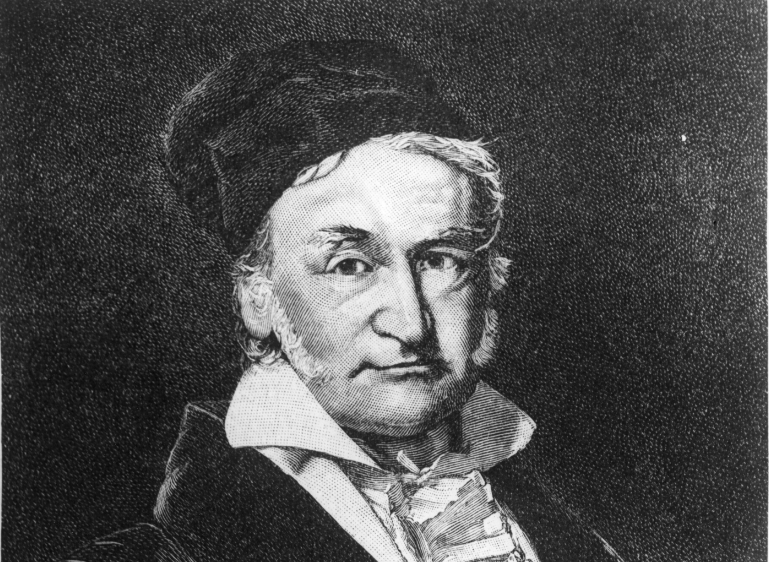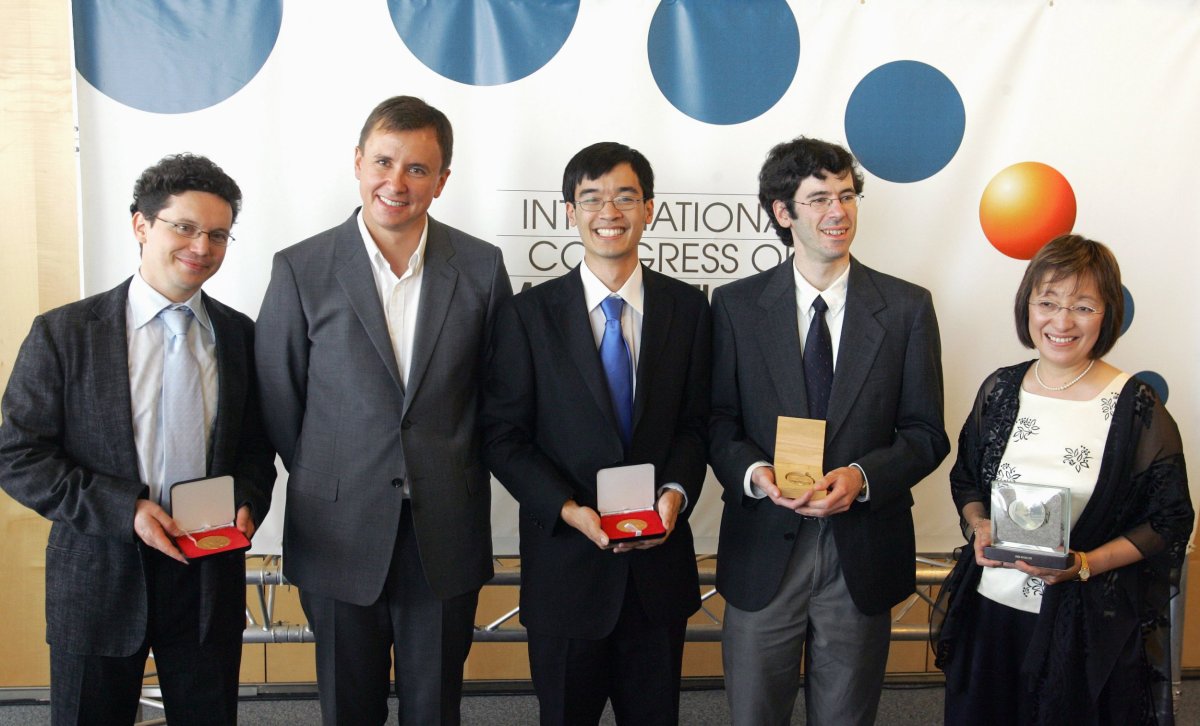
Google Doodle celebrates the 241st birthday of Johann Carl Friedrich Gauß, a German mathematician dubbed the "prince of mathematics" credited for combining theory and practice and advancing technological innovation through his work.
Legend has it that Gauß displayed his computational talent as a child when a teacher assigned the class to sum up all the numbers from 1 to 100, and he found a simple and elegant solution to the problem, recalled in the 1955 biography "Carl Friedrich Gauss: Titan of Science."
He understood that the problem could be solved by writing the numbers in two columns to create 50 pairs of numbers whose total is 101. He then calculated the final answer—5,050—within a few minutes. While the anecdote may or may not be true, the formula for calculating the sum of a series has since been attributed to him.
The child prodigy's talent was recognized by the duke of Brunswick, who subsidized his study of mathematics at the University of Göttingen. His work initially focused on arithmetic and geometry. He eventually published his first book on algebraic number theory in 1801, titled Disquisitiones Arithmeticae.
His second publication, in 1809, contributed to the field of astronomy. Gauß's calculations solved the mystery of the whereabouts of the Ceres asteroid, which was first discovered in 1801 by Italian astronomer Giuseppe Piazzi before it disappeared out of astronomers' sight, leaving them unable to predict its orbit. Gauß's innovative method introduced a new way of dealing with errors in observation, now known as the method of least squares.
After working as an astronomer, Gauß began applying his skills to cartography, to which he contributed the invention of the heliotrope—an instrument since used by surveyors to observe positions and distances—and the discovery of a formula to express the concept of the curvature of a surface.
He later studied terrestrial magnetism, inventing the magnetometer, and worked with the physicist Wilhelm Weber to invent the first electric telegraph. He died in 1855 of a suspected heart attack, his career spanning more than five decades.
The International Mathematics Union launched an award in his honor in 2006 in collaboration with the German Mathematical Society to highlight the contribution of mathematics to technology.
The Carl Friedrich Gauss Prize awards a 14 carat-gold medal and a prize worth around €10,000 ($14,000) every four years to "outstanding mathematical contributions with a significant and lasting impact on applications outside mathematics."

Quotes
Gauß was also a prolific writer and thinker whose diaries and letters have since been quoted in various works. Mathematics naturally emerges as his favorite subject: "Mathematics is the queen of the sciences and number theory is the queen of mathematics," he is believed to have said.
In a letter to his friend, the Hungarian mathematician János Bolyai, he wrote about his delight in constantly delving into new mysteries.
"It is not knowledge, but the act of learning, not possession but the act of getting there, which grants the greatest enjoyment," he wrote. "When I have clarified and exhausted a subject, then I turn away from it, in order to go into darkness again; the never-satisfied man is so strange if he has completed a structure, then it is not in order to dwell in it peacefully, but in order to begin another."
Described as a deeply religious and conservative man, Gauß once remarked that God too must be a mathematician: "God does arithmetic," he sad.
He also recognized mathematical talent in other people, including women, at a time when women were discouraged from pursuing education, particularly in the field of sciences. The work of his contemporary Sophie Germain impressed Gauß so much he regretted she died before being able to award her an honorary degree from his University of Göttingen. "Sophie Germain proved to the world that even a woman can accomplish something in the most rigorous and abstract of sciences," he once said of her.
One of Gauß's more well-known remarks is a departure from his focus on mathematics, expressing his feelings about the engagement to his first wife Johanna Osthoff. "Life stands before me like an eternal spring with new and brilliant colors," he reportedly wrote. Unfortunately, his happiness was short-lived as his wife died in 1809, four years after their wedding (Gauß later remarried.)
Another of his famous quotes is his motto, "Few, but ripe," indicative of his perfectionist strive in his work—and perhaps the reason why, though he began to consider the existence of non-Euclidean geometry, he never published a cohesive discussion on the subject.
Uncommon Knowledge
Newsweek is committed to challenging conventional wisdom and finding connections in the search for common ground.
Newsweek is committed to challenging conventional wisdom and finding connections in the search for common ground.
About the writer
Sofia Lotto Persio reports mainly on Asia and gender issues for Newsweek. She previously covered international affairs with a specific ... Read more
To read how Newsweek uses AI as a newsroom tool, Click here.








